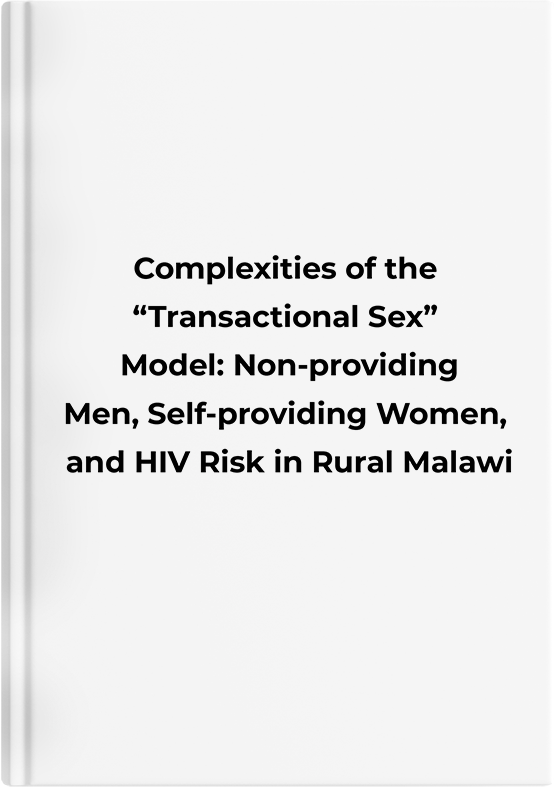
The “transactional sex” model, which is increasingly used to explain the continued spread of HIV throughout sub-Saharan Africa and consequently inform policy, overlooks certain important cultural and socioeconomic aspects of women’s sexual choices. This chapter is based on a one-year anthropological field study in rural Malawi on the impacts of improved economic security on women’s sexual choices. While confirming the widespread assumption that the direct need for material support plays a role in poor women’s decisions to readily accept sexual proposals from men, findings reveal that the depiction of women as powerless victims forced to transactional sex by acute destitution does not necessarily hold. It is argued that the model should be expanded to acknowledge women’s agency, and include less direct gains such as community membership and social security.
| Asset Type: | Publications |
| Collection: | Foreign Publications |
| Subject: | Transactional sex, HIV/AIDS, Saharan Africa, Policy, Cultural aspects, Socio-economic aspects, Women’s sexual choices, Anthropological field study, Rural Malawi, Economic security, Women’s decisions, Sexuality, Men, Community membership, Social security |
| Author: | Janneke Verheijen |
| Publisher: | Annals of Anthropological Practice |
| Publication Date: | May 2011 |

